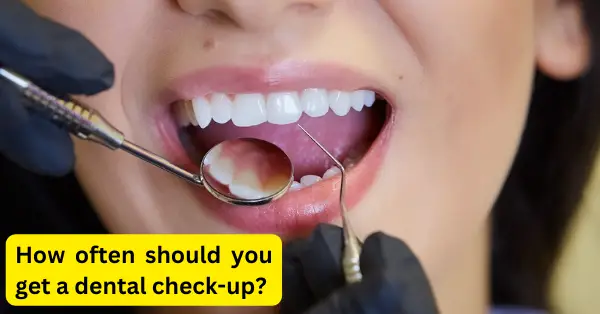Maintaining a healthy oral condition is essential for overall well-being. regular dental exams are a crucial part of it. Many people neglect or delay getting their dental check-ups which can lead to more serious dental health issues later on. In this blog we will talk about the importance of having dental check-ups and the frequency you should schedule these.
Why is it important to have dental check-ups?
Dental check-ups go beyond about cleaning your teeth or repairing the cavity. They play an important role in identifying any potential oral health issues and preventing the development of more serious issues. Regular dental examinations can identify early warning indications of oral cancer, cavities, gum disease and many other dental issues.
Furthermore, dental examinations offer the opportunity to have your dentist examine your general oral hygiene and health. They will be able to provide valuable tips on maintaining a healthy oral health and also preventing any future dental issues.
How often do you need to have an appointment for a dental exam?
The frequency of your dental check-ups is contingent on several variables, including the age of the patient, their oral health and the risk factors that can lead to dental issues. These are general recommendations for the frequency you should have your dental check-ups:
Every six months
The American Dental Association recommends that all adults undergo an appointment for a dental exam each six-month period. This is a good time for those with good oral health who follow good oral hygiene habits.
If you’ve had any dental problems in the past, like gum disease and frequent infections in your mouth, your dentist might recommend regular visits. Patients with weak immune systems and diabetes or who smoke are also at risk of developing dental issues and could require more frequent visits to the dentist.
More often
Certain people who have good oral health might require less frequent dental check-ups. Your dentist might suggest a frequency of 9-12 months if your have excellent oral health, adhere to excellent oral hygiene habits and do not have a previous history of dental issues.
It is important to remember that these are guidelines for general use, as well as the timing of your dental check-ups will vary based on your particular requirements. Your dentist will take into consideration your individual needs regarding your oral health and suggest the most appropriate time for your dental check-ups.
What is the process during a dental check-up?
A typical dental check-up consists of two elements: the exam and cleaning.
Examination
In the course of your examination the dentist will:
Look for any signs of tooth decay.
Examine your gums to find indications of gum disease
Check for indications of oral cancer, or other oral health concerns.
Take a look at your bite and jaw for any sign of misalignment, or of grinding teeth
Consider x-rays if needed
Your dentist could also ask you about your current dental hygiene routine as well as any changes in your general health that could impact the health of your mouth.
Cleaning
Following the exam the doctor or dentist cleans your teeth. The process includes:
Remove tartar and plaque from your gums and your teeth line
Polishing your teeth can get rid of staining on the surface
Flossing your teeth between them to eliminate any debris that remains
The application of fluoride treatment can help keep your teeth safe from tooth decay
Your dentist can also offer guidance on maintaining healthy dental hygiene habits including flossing and brushing, as well as selecting the appropriate dental equipment.
Tips to maintain good oral health
In addition to regular dental checks There are many other ways you can ensure good oral health. Here are some helpful tips:
Make sure you brush your teeth twice a every day
Cleaning your teeth twice per every day using a fluoride toothpaste is essential to maintain excellent oral hygiene. Be sure to clean the entire surface of your teeth, including your tongue.
Floss daily
Flossing removes plaque and food particles from between your teeth, an area that your toothbrush isn’t able to reach. Every day, a quick swish will help to reduce the risk of gum disease and tooth decay.
Avoid acidic and sugary food and drinks
Foods and drinks can lead to tooth erosion and tooth decay. Be aware of the consumption of these beverages and foods and rinse your mouth after having these drinks and foods.
Use a mouthguard
If you are a sportsperson and grind or grind your teeth using a mouthguard will help keep your teeth safe from damage and also prevent wear to your teeth.
The most important thing is the bottom line
Regular dental examinations are vital to ensure good oral health and to prevent dental problems from becoming serious. The frequency of dental visits is dependent on the individual’s requirements, but the majority of adults should undergo a exam at least every 6 months. Alongside regular dental check-ups practicing proper oral hygiene like brushing twice daily and flossing, limiting the consumption of acidic and sugary foods and drinks and quitting smoking will help to maintain healthy oral health. If you have concerns regarding the health of your mouth, make an appointment at your doctor.
